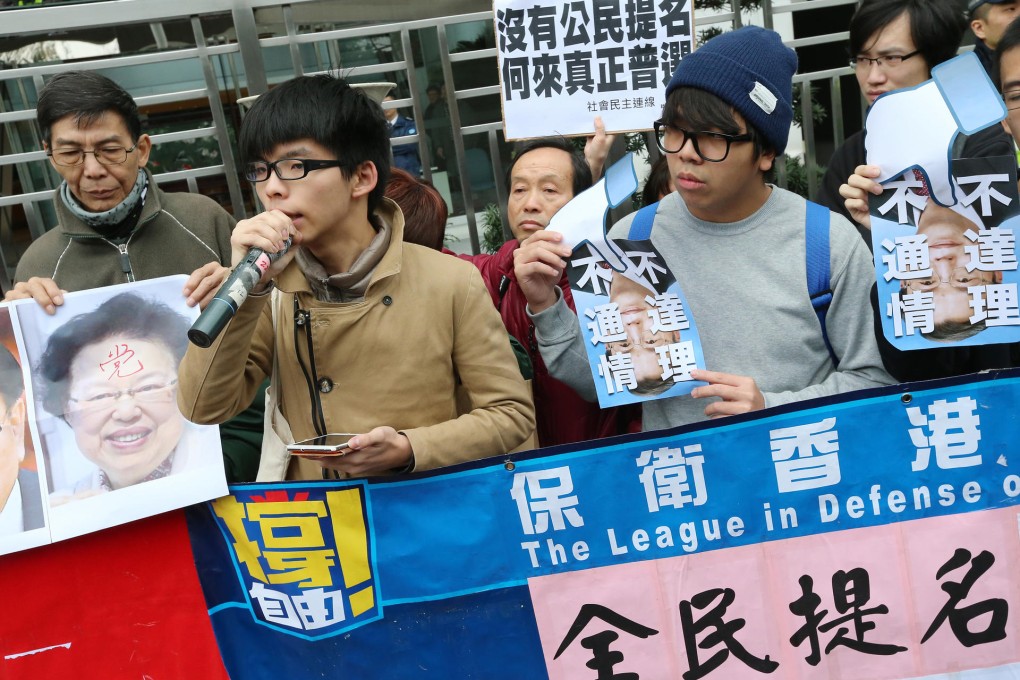Beijing's words will not halt Occupy Central's plans, says organiser Benny Tai
Organiser Benny Tai says city must insist on a reform plan compatible with international standards despite central government's warnings

Occupy Central will go on discussing electoral reform proposals favoured by Hongkongers rather than those Beijing officials prefer, the civil disobedience movement's organiser Benny Tai Yiu-ting said yesterday.
The University of Hong Kong law academic was speaking at Chinese University at the conclusion of the movement's second "deliberation day". He was addressing comments by National People's Congress chairman Zhang Dejiang , who last week warned of "disastrous consequences" if Hong Kong adopted a Western-style of democracy instead of following its mini-constitution, the Basic Law.
Meanwhile, at a plenary session of the Chinese People's Political Consultative Conference in Beijing yesterday, Hong Kong delegate and CPPCC Standing Committee member Ambrose Lau Hon-chuen criticised Occupy Central's plans as "extreme and illegal".
But Tai said the campaign - which plans to rally protesters to block roads in the city's financial centre if the authorities fail to deliver an acceptable proposal to implement universal suffrage for the 2017 chief executive election - would not change its tactics in response to Zhang's warnings.
"Right from the start, we were talking about a proposal compatible with international standards, not one most likely to be accepted by Beijing," Tai said.